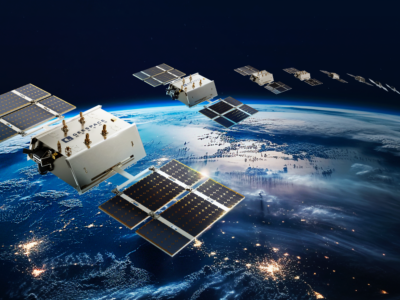India reached a historic milestone on Wednesday after the Vikram lander of the Chandrayaan-3 Lunar Mission became the first spacecraft to land on the South pole of the Moon’s surface.
The Chandrayaan-3 Lander Module, which means ‘Moon craft’ in Sanskrit, touched down on the lunar surface shortly after 18:00 hours India time (16:30 UAE time), making India the first nation to successfully land a spacecraft on the Moon’s south pole.
Officials at ISRO headquarters in Bengaluru, India also broke into applause as the spacecraft landed on the Moon’s surface.
This achievement comes just days after a Russian lunar mission faced failure in the same region.
Chandrayaan-3 is the successor to the Chandrayaan-2 mission of 2019, which unfortunately ended in failure when the Vikram lander crashed on the Moon’s surface.
The Chandrayaan-3 project was executed with a relatively modest budget of approximately $75 million, yet it has the potential to significantly enhance the global reputation of the Indian Space Research Organisation (ISRO).
In stark contrast, Russia’s first lunar mission in nearly five decades encountered a disastrous setback.
Roskosmos, the Russian space agency, reported a loss of contact with their spacecraft at 11:57 GMT on Saturday, as it encountered issues while transitioning into its pre-landing orbit.
India’s Prime Minister celebrates Chandrayaan-3 success
“We reached where no nation has reached before. All the people of the world, the people of every country and region, India’s successful Moon mission is not just India’s alone, this is the year in which the world is witnessing G20 presidency. our approach of one earth, one family one future,is resonating across the globe,” Indian Prime Minister Narendra Modi said, addressing the world on Wednesday.
“This human-centric approach that we present and we represent had been welcomed universally. Our Moon mission is also based on the same human-centric approach therefore this success belongs to all of humanity and it will help Moon missions by other countries in the future. I am confident that all countries in the world including those from the global South are capable of achieving such feats. We can all aspire for the Moon and beyond,” Modi added.
The Prime Minister, who joined in from Johannesburg in South Africa, added that India has “created history.”

S. Somanath, who is the chairman of the ISRO, also thanked the Prime Minister, as well as his colleagues who played a key role in the Lunar mission.
“India is now on the Moon,” Somanath said, adding that “we will continue to do our best and keep our flag flying — both India and ISRO,” and that the success of this mission is the work of many generations of the Indian space agency.







